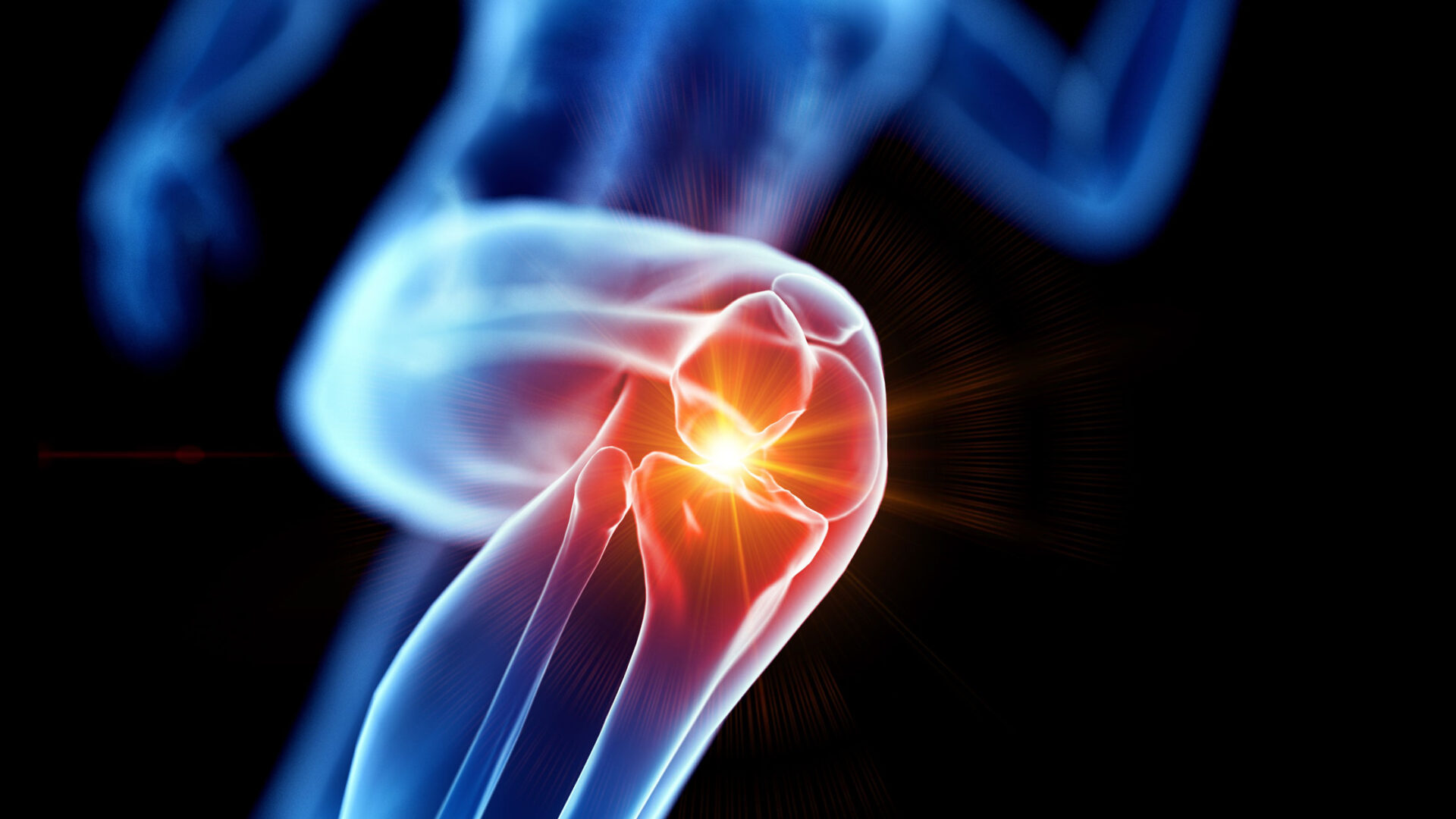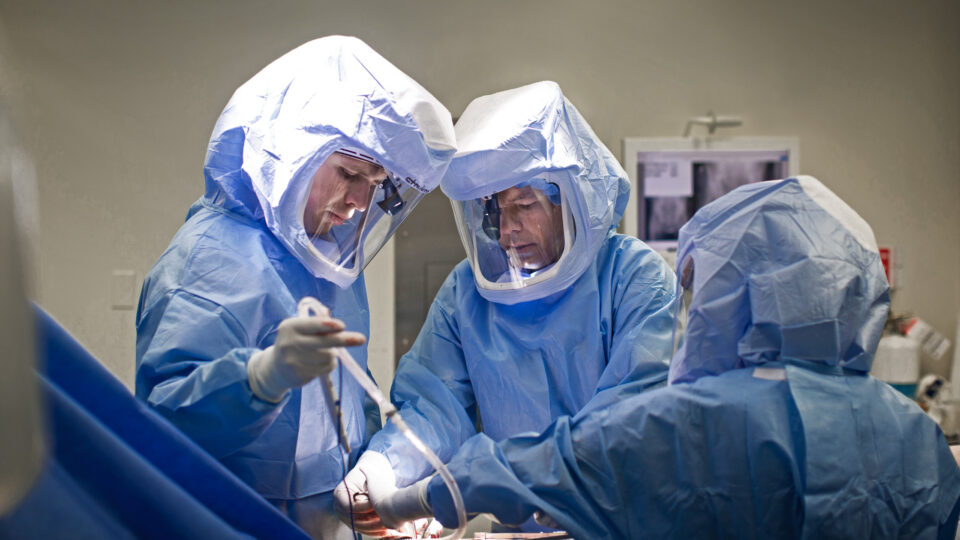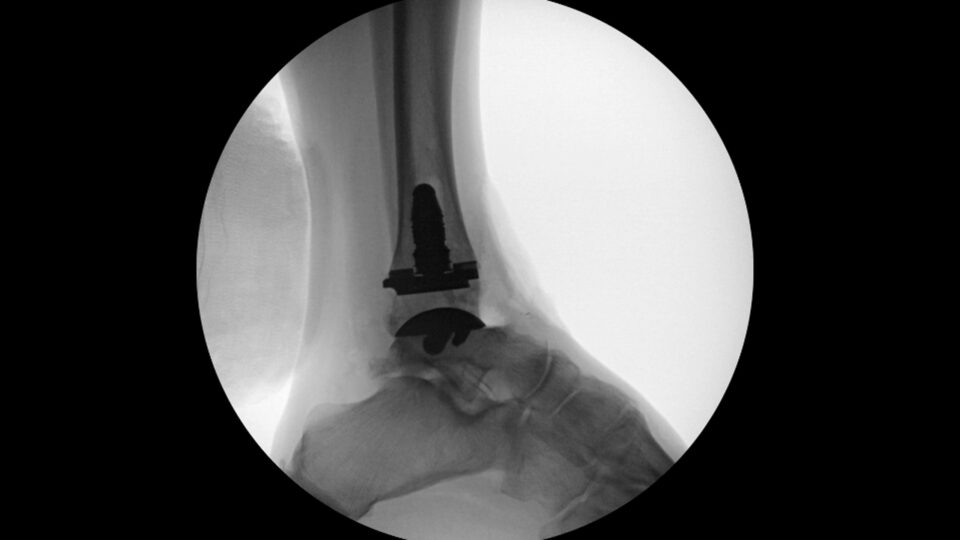Referral Notes:
- An NYU Langone Orthopedics study finds that higher inflammatory biomarker levels in knee SF at the time of meniscectomy predict poor long-term outcomes in patients with chronic meniscal injuries.
- The retrospective study examined 55 patients with chronic meniscal injuries, with a mean follow-up period of over eight years.
- Biomarkers linked to worse outcomes include IL-6, MCP-1, MIP-1β, VEGF, IL-1Ra, MMP-3, and bFGF.
- Future studies will explore using SF biomarkers to guide early, targeted interventions.
New evidence suggests that elevated proinflammatory synovial fluid (SF) biomarkers predict poor long-term outcomes in chronic meniscal injuries. The study, published in the American Journal of Sports Medicine, is among the first to focus on biochemical predictors of outcomes in chronic meniscal injuries.
“Patients with chronic injuries and persistently elevated inflammatory markers at the time of arthroscopic meniscus surgery show worse long-term outcomes, including worse pain scores and the need for more postoperative injections,” says study senior author and sports medicine specialist Eric J. Strauss, MD.
“SF biomarker analysis is an exciting research tool that could have a major impact on how we treat our patients.”
Eric J. Strauss, MD
The findings could have important implications for the treatment of patients with chronic meniscal injuries and high-inflammatory profiles, Dr. Strauss adds. “By identifying these types of patients before meniscectomy, we could intervene early with modified postoperative rehabilitation protocols or orthobiologics like platelet rich plasma or bone marrow aspirate to improve the joint microenvironment.”
The SF Molecular Milieu
In the SF microenvironment, higher concentrations of proinflammatory markers such as interleukin 6 (IL-6), monocyte chemoattractant protein 1 (MCP-1), and matrix metalloproteinase 3 (MMP-3), have been linked to worse outcomes in patients with acute meniscal tear. However, less is known about the predictive ability of these biomarkers in the setting of chronic meniscal injury.
“We believe that synovial fluid is an ideal source to mine for clinically useful biomarkers,” explains Dr. Strauss. “SF biomarker analysis is an exciting research tool that could have a major impact on how we treat our patients.”
In 2010, Dr. Strauss established the NYU Langone Orthopedics Synovial Fluid Biomarker registry to accelerate translational research. To date, he and his team have collected joint fluid samples from 1,650 patients who have undergone arthroscopic knee surgery for meniscus, ligamentous, or cartilage injuries.
“Only a handful of academic centers perform this type of analysis for patients undergoing arthroscopic knee surgery.”
“Only a handful of academic centers perform this type of analysis for patients undergoing arthroscopic knee surgery,” says Dr. Strauss. “While it’s still an emerging area of research, the range of potential clinical applications is vast.”
Clues from Biomarker Analysis
In a retrospective analysis, Dr. Strauss and colleagues investigated the relationship between biomarker levels in SF at the time of meniscectomy and long-term outcomes in patients with acute (< 6 weeks of symptoms) versus chronic (> 12 months of symptoms) meniscal injuries.
The most significant finding, notes Dr. Strauss, was that patients with chronic meniscal injuries could be grouped into a more proinflammatory SF biomarker profile or a low inflammatory profile, and those in the former had worse postoperative scores for pain and knee function and higher rates of postoperative corticosteroid injections. Biomarkers in the high inflammation profile include IL-6, MCP-1, MIP-1β, VEGF, IL-1Ra, MMP-3, and bFGF.
In patients with acute meniscal injuries, most showed a high-inflammation profile, which was not itself a predictor of poor long-term outcomes. “This surge of inflammatory biomarkers after acute injury is a well-documented phenomenon that is physiologic rather than pathologic. Accordingly, it follows that the acutely injured group with elevated biomarkers was not at an elevated risk for worse outcome scores,” wrote the authors.
In total, 30 patients with acute and 55 patients with chronic meniscal injury were included in the study. All patients had a minimum of four years of follow-up, with the average being 8.66 years.
“A joint environment that remains persistently inflamed one year after meniscus tear predisposes the patient to continued knee pain and limited function following arthroscopic surgery,” he says.
Support for Early Intervention
The findings could assist in identifying patients who may benefit from closer monitoring and early intervention, benchmark recovery expectations, and highlight potential roles for targeted biologics. Dr. Strauss acknowledges, however, that despite the promise of biologics, further confirmatory research is needed to determine their ability to improve patient outcomes.






